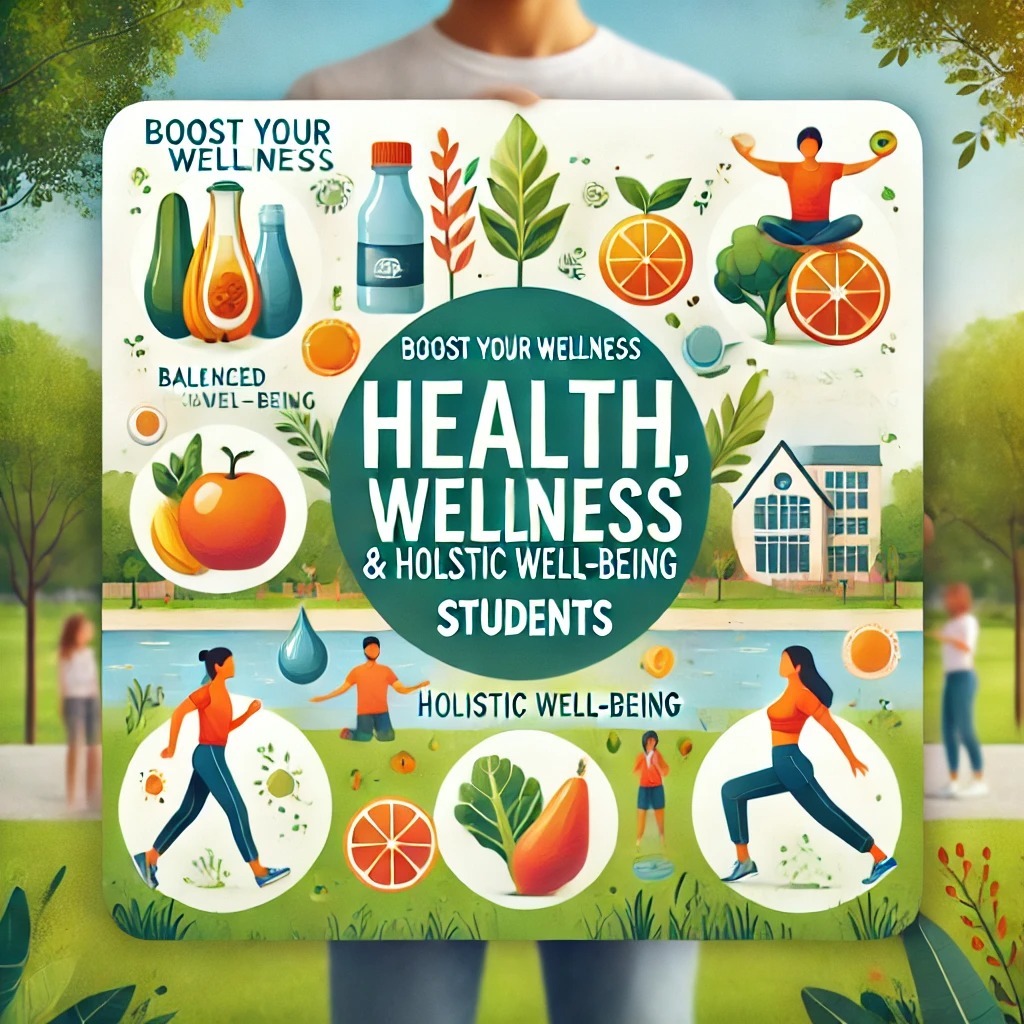Students have to handle a difficult mix of responsibilities and demands in the fast-paced, high-stress academic environment of today. Academic success and general pleasure now depend significantly on well-being in several areas of life, not only on performing well in sports or receiving high marks. For students, the idea of holistic living is about taking care of their body, mind, and soul. The path to holistic living can be life-changing for young people, encouraging dedication and a positive approach.
Achieving excellence in all areas of life is not the goal of holistic living. Instead, it encourages self-care and balance by treating various facets of health, such as mental clarity, mental endurance, physical fitness, and even spirituality. Due to hectic schedules or pressure to perform well, many students have a tendency to neglect their emotional needs or mental health. A balanced strategy, however, guarantees that they are maintaining their energy and general well-being in addition to pushing themselves.
Students who practice holistic living are better equipped to handle stress and develop long-term, healthful behaviors. By establishing enduring habits for general well-being, it exceeds short-term strategies like crash dieting before tests or staying up late to finish homework. It inspires kids to partake in activities that promote their mental, spiritual, and physical well-being.

Key Components of Holistic Well-Being
1. Physical Health: Taking care of the body is an essential component of holistic living. A healthy diet, regular exercise, and enough sleep are the cornerstones of students’ physical well-being. Exercise doesn’t have to be confined to intense gym sessions; even simple pursuits like cycling, or walking can have a big impact. Nutrition plays a role in physical well-being as well; avoid depending on junk food or coffee for energy instead of eating meals high in vital nutrients. Lastly, as it has a direct effect on focus, memory recall, and general health, getting enough good sleep is essential.
2. Mental Health and Mindfulness: Students’ mental health is very important. Many people suffer from stress and anxiety as a result of social pressures, exams, and tasks. Journaling and meditation are examples of mindfulness exercises that can provide relief and strengthen mental toughness. Instead of stressing about the future or dwelling on the past, mindfulness enables students to be in the present and enjoy every moment. By putting these behaviors into practice, they may handle difficult times more composedly and stay focused.
3. Emotional Awareness and Expression: For overall well-being, it is essential to recognize and understand emotions. Emotionally aware students are better able to handle challenging situations and relationships. Speaking with friends, relatives, or a counselor promotes emotional expression, which releases bottled-up emotions and develops empathy and resilience. Better academic and personal results can result from developing knowledge of how emotions influence our decisions.
4. Spirituality and Purpose: Religious activities are not the only way to be spiritually well; self-connection and purpose-finding are also important. Beyond academics or accomplishments, students can find a sense of contentment from nature, introspective exercises, or individual beliefs. Spirituality gives students a feeling of purpose in life by encouraging gratitude and providing a sense of grounding.
Practical Steps Towards Holistic Living
There is no one-size-fits-all approach to the path to holistic living, but students can begin by making small changes to their daily schedule. Here are a few concrete actions:
- Create a balanced schedule: Allocate time for studies, physical activities, and relaxation.
- Practice gratitude: Writing down things to be grateful for each day can improve mood and encourage positivity.
- Limit screen time: Excessive screen time can affect sleep and focus; try setting boundaries.
- Build support systems: Surround yourself with people who encourage and support your growth.
Parents’ Role in Supporting Holistic Well-Being
In order to provide their children with a comprehensive environment, parents are essential. Promoting behaviors like regular exercise, emotional expression, and a good diet can have a big impact on a student’s wellbeing. Their overall growth can be greatly impacted by having open discussions, listening without judging, and promoting mindful practices.
Embrace Holistic Living for a Fulfilling Student Life
For students, leading a holistic lifestyle is a lifetime habit rather than a passing trend. It gives them the skills to deal with difficult situations and prepares them to face challenges in a balanced way. According to life transformation coach Sajjan George, “Students can thrive—not just survive—through a balanced diet, regular exercise, emotional awareness, and spiritual care.”
Students can improve their academic performance and discover more purpose and fulfillment in life by adopting a holistic approach to well-being. Taking charge of their health, developing their minds, and valuing their spirits are the first steps on the path.
